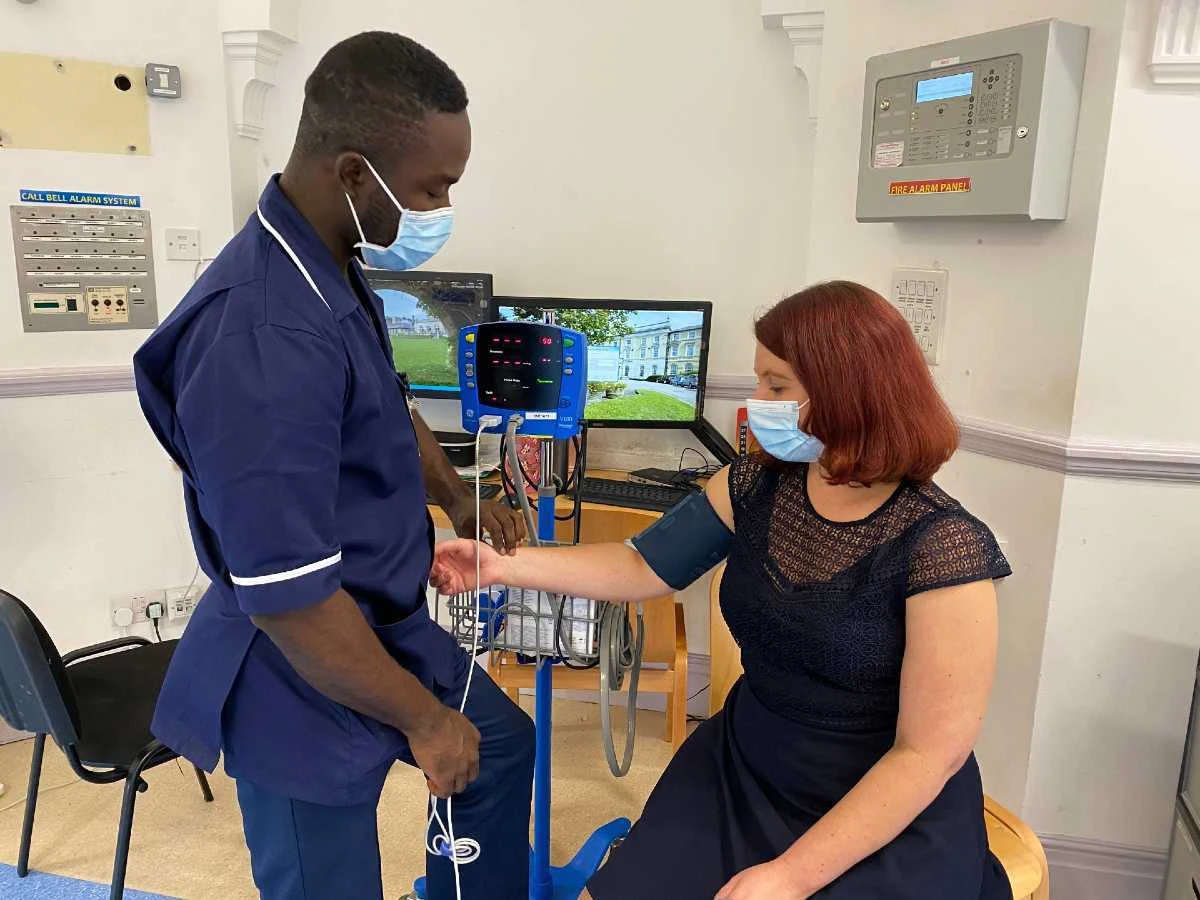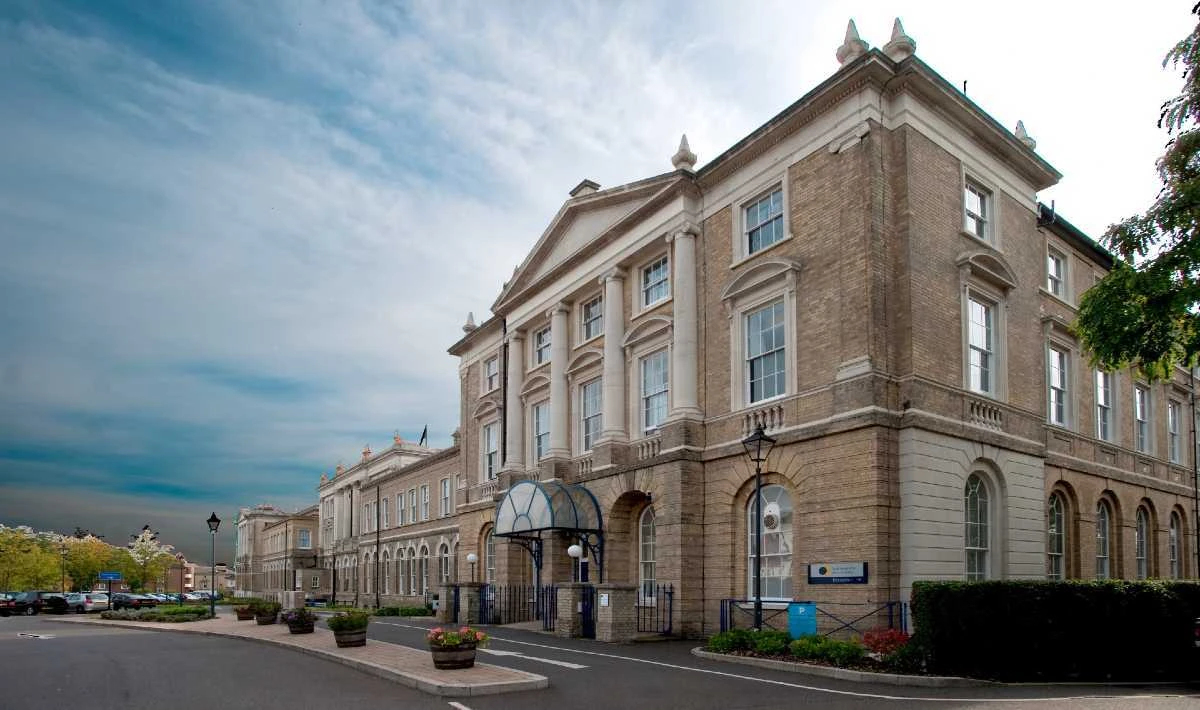The Royal Hospital for Neuro-Disability (RHN) in Putney has enlisted BT and start-up firm Microshare to introduce a smart Internet of Things (IoT) solution to help automate routine tasks to enable staff to spend more time with patients, and residents, and to reduce energy costs. The hospital says that the technology has proved extremely beneficial as pressure on staff has increased during the COVID-19 pandemic.
The 240-bed site is a charity-run hospital offering long term care to people with complex neurological disabilities caused by damage to the brain or other parts of the nervous system. Many of the procedural tasks that staff carry out daily are time consuming and require manual recording to ensure compliance.
However, thanks to the new technology deployed at the hospital, this is largely now monitored automatically, freeing up staff so that they can focus on caring for patients. The smart technology solution involves IoT sensors being placed in rooms and on equipment to monitor things like room occupancy and temperature, as well as asset tracking of objects like wheelchairs, and temperature monitoring of fridges storing medicine.
Rather than staff having to manually check the temperature of the fridges, they are now equipped with automated alarms which will indicate if there is a problem requiring staff attention. The monitoring of water tanks inside the hospital is also now completely automated.

Previously, staff would need to get access to the roof of the building in order to take temperature recordings of one of the water tanks inside the hospital – a task that may have taken an entire day. Now, thanks to the smart network, this is all done remotely and recorded on the system.
Water tanks are monitored primarily for legionella bacteria compliance testing. Thanks to the smart IoT solution the hospital is able to receive more frequent readings providing better monitoring and freeing up staff who no longer have to carry out physical checks. The hospital has four tanks on site which were previously checked every month.
Hospital leaders say the room monitoring has provided cost savings as the data has proved that they did not require anther meeting space, which would have brought challenges in re-allocating another location in an older building where space is paramount.
BT is providing the secure wireless network at the hospital which enables the smart IoT sensors to relay information, using LoRaWAN (Low Power, Long Range, Wide Area Network) technology.
Devices connected to a LoRaWAN network use very little power, giving them a long battery life and making them a low cost, long range solution for IoT applications.
The hospital uses a combination of IoT sensors, LoRaWAN connectivity and data management. BT provided the infrastructure and expertise in deploying the LoRaWAN gateway which has been installed on the roof and the cloud-based network management tools to secure the devices and infrastructure.
Microshare sourced the smart IoT sensors, connected them to its Microsoft Azure cloud and quickly integrated them into the RHN’s infrastructure.
Toby Roberts, CIO of the RHN, said:
“The new IoT system is part of a major drive towards digital transformation at the hospital. Five years ago, the hospital was mostly a paper based organisation with very little use of computers and networks.“
However, over the past few years we’ve introduced more digital solutions to make tasks simpler and easier. For example, whereas nurses used to take observations and record patient details on a clipboard, this is now done on an iPad and automatically fed into our secure network.
“Thanks to BT and Microshare we are now able to automate many tasks that would have previously taken considerable time or effort to carry out. If a nurse wants to find out where a wheelchair or ECG machine is, they can simply log onto the computer and find out where in the hospital it is located. Something that may have taken an hour or more in the past is now done in seconds.
“This technology has been extremely useful during the current pandemic as it has allowed our staff to perform more efficiently under heightened pressures. Instead of spending time filling out paper forms, they’re able to do it at the click of a button.”
Chris Sims, MD Commercial and Marketing for BT’s Enterprise business, added:
“At a time when our healthcare sector has faced unprecedented challenges due to Covid-19, it’s amazing to see how this is hospital has embraced the latest technology to make a difference for staff and patients.
“It shows how technology can be a huge enabler and a force for good. We’re helping communities and organisations such as RHN to make the best of the opportunities which these novel technologies can offer.
“The network we have provided at the hospital allows blanket connectivity for hundreds of devices across the building, from the basement to the upper floors. In fact, its range is so impressive, the signal reaches as far as Paddington eight miles away.
“I congratulate the hospital’s team for how they are leading the way in this sector and demonstrating how it’s possible to do things smarter and better while still making cost savings in areas like energy use.”
The RHN is a charity, independent from the NHS but working closely with it, to provide the best possible care for people living with neuro-disability. The hospital relies on public donations to provide some of its services.



